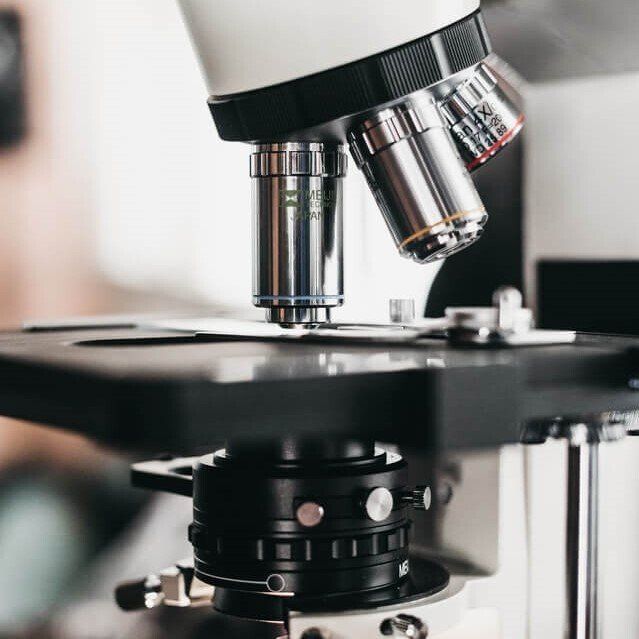Screening of Sperm Donors
Get an inside look at our rigorous donor selection process
Selected According to the Highest Standards
At our sperm bank a potential sperm donor is rigorously screened to meet the highest regulatory standards from the Danish Health Authority, the Danish Patient Safety Authority, and the EU Tissues and Cells Directive.
Our experienced team of health professionals, specialists, and lab technicians also apply our own rigorous selection criteria, screening for health, sperm quality, physique, and character. Only 3% of donor applicants make it through our screening process.
Read on for a detailed look at the tests and evaluations we run.
Preliminary Evaluation of Potential donors
In the initial evaluation to become a sperm donor, we ensure these factors are met:
- Donors are aged between 18 - 45
- Donors complete an application and preliminary interview to assess their personality and talents
- Criminal record check
- Sperm quality - count, volume, motility, viability, and normality
- General health, possible risk factors, and family medical history
Potential donors must also consent to the following to proceed:
- A comprehensive medical questionnaire and several in-person interviews designed to get to know the donor and exclude applicants with infectious diseases, hereditary illnesses or other risk factors.
- Consent to ID-release
- Consent that as a donor, they have no parental rights to a donor child or any legal responsibilities for a donor child.
Infectious Disease Evaluation
As a next step, we request blood and urine samples to screen for the following infectious diseases:
- HIV
- Hepatitis B Surface Antigen
- Hepatitis B Core Antibody
- Hepatitis C Viral Antibody
- CMV IgG/IgM
- Syphilis
- Gonorrhoea
- Chlamydia
Medical and Genetic Evaluation
Our physicians will then review the applicant’s family medical history and also screen for the following:
- Blood group and Rhesus status
- Hemoglobin electrophoresis
- Genetic screening for carrier status of the most common recessive diseases, including Thalassemia and Sickle-cell anaemia, Chromosome analysis, Cystic fibrosis, and Spinal muscular atrophy (SMA)
This evaluation includes a thorough physical examination by a doctor and an assessment by a specialist in clinical genetics.
Summing Up How We Test Our Donors
We select and screen our donor applicants in accordance with the quality and safety standards stipulated in the EU directives regarding human tissue and cells, and as implemented in the Danish Tissue and Cells Act.
This means that all our donors undergo thorough screening and testing by our team of experienced health professionals and medical specialists.
We always follow the Danish Patient Safety Authority/Health Authority recommendations, the Sperm Bank’s internal standards, and the guidelines/regulations in the countries shipped to such as (but not limited to) the HFEA, SOSFS, BfArM.
Genetic tests (autosomal recessive diseases) including, but not limited to:
- Cystic fibrosis (CFTR)
- Non-syndromic hearing loss (GJB2)
- Beta-hemoglobinopathies (HBB)
- Alpha-thalassemia (HBA1)
- Alpha-thalassemia (HBA2)
- Spinal muscular atrophy (SMN1)
- Tay-Sachs disease (HEXA)
- Phenylketonuria (PAH)
Initial tests
- Blood type (ABO RhD)
- Karyotype
- CMV
Tests at Release
- HIV I + II (NAT + ab)
- HEP B + C (NAT - ab)
- Syphilis (ab)
- Chlamydia (NAT)
- Gonorrhea (NAT)
- CMV (ab)
- HTLV I+II (ab)

Ongoing Screening to Ensure Healthy Donors
Even after we accept a donor, all donor specimens are quarantined and the donor retested for HIV, (HTLV-I & II), Hepatitis B Surface Antigen, Hepatitis B Core Antibody, Hepatitis C Viral Antibody, Syphilis, CMV IgG/IgM, Gonorrhea and Chlamydia before the donated sperm is made available for use.
Once an applicant is accepted into our donor program, we reassess their health status on a regular basis. Active donors are physically examined once a year and tested for infectious diseases every 2-3 months.
Before every donation, donors complete a questionnaire about risk behaviours and risk factors.
Screening of Sperm donors: What screening Can - And Can’t – Do
As sperm is a biological material, we cannot completely rule out the risk of transmitting a hereditary or infectious disease. However, our extensive screening and testing according to the highest clinical standards greatly reduces this risk.

